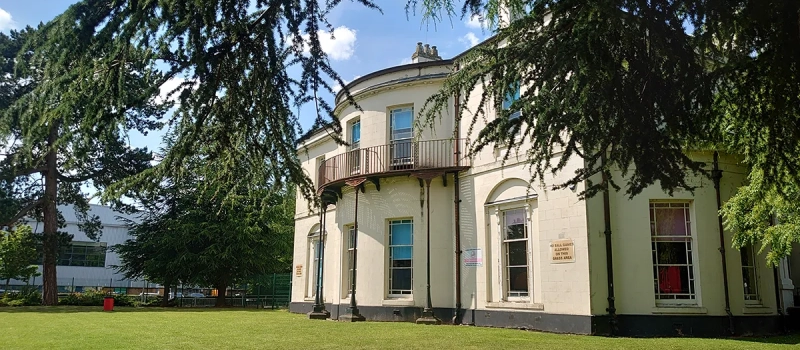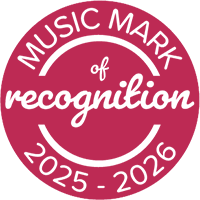Mathematics
We believe that a strong understanding of maths helps students to understand the world around them and allows them to make reasoned choices in their lives outside school. The Maths Faculty strives to provide a rich and meaningful course to ensure that all pupils can access and enjoy the curriculum and reach their full potential.
We want to give students the confidence to embrace mathematical challenges that they encounter as adults using the problem-solving skills they have developed as students.
Mathematics is a popular subject at Parrs Wood with a high number of pupils choosing to continue its study into A-Level.
Equipment Required
- Pen
- Pencil
- Ruler
- Rubber
- Sharpener
- Scientific calculator (we recommend the CASIO fx-83CW)
- Protractor (ideally 360 degrees)
- Pair of compasses
Mathematical equipment along with the rest of the simple 7 (inc. Casio fx-83GT plus) can be purchased from the stationary shop on site. Students can also spend their rewards points on equipment from the online portal with next-day collection available.
Useful Links
Our staff highly recommend these links for students to visit as they contain useful resources to assist in maths:
- DrFrostMaths
- mathsgenie.co.uk
- onmaths.com
- corbettmaths.com
- Mr Barton Maths
- Bitesize GCSE Maths
- MyMaths (ask a maths teacher if you do not know your login details)
Key Stage 3
Students are facilitated in the development of their number, data handling and geometry skills and be introduced to algebra and probability. Topics are taught in line with the National Curriculum and are taught in a variety of formats and key numeracy skills are regularly revisited. By the end of Key Stage 3, pupils will have mastered the essential numeracy skills and have a solid foundation of topics to enable them to succeed at GCSE at the appropriate level.
Year 7
- Sequences
- Understand and use notation
- Equality & equivalence
- Place value & decimals
- FDP equivalence
- Addition & subtraction
- Multiplication and division
- Fractions & % of amounts
- Directed number
- Addition and subtraction of fractions
- Construction & measuring
- Geometric reasoning
- Developing number sense
- Sets & probability
- Prime Numbers and Proof
Year 8
- Ratio & scale
- Multiplicative change
- Multiplying & dividing fractions
- Working in the cartesian plane
- Representing data
- Tables & probability
- Brackets, equations and inequalities
- Sequences
- Indices
- Fractions & percentages
- Standard form
- Number Sense
- Angles in parallel lines & polygons
- Area of trapezia & circles
- Line symmetry & reflection
- The data handling cycle
- Measures of Location
Year 9
- Straight line graphs
- Forming and solving equations
- Testing conjectures
- Three-dimensional shapes
- Constructions and congruency
- Numbers
- Using percentages
- Maths and money
- Deductions
- Rotation and translation
- Pythagoras’ Theorem
- Enlargement and similarity
- Ratio and proportion
- Rates
- Probability
- Algebraic representation
Key Stage 4
At KS4, our Maths curriculum builds on the skills that pupils have gained at KS3. We develop problem solving techniques so that pupils can reason mathematically and break down information and decide on the mathematical skills that are needed to solve more complex problems. We expose students to exam style questions to prepare them for the GCSE and we ensure that pupils are challenged. By the end of KS4, students are aim is for all students to achieve success at GCSE and have problem-solving skills necessary for further education or to secure employment and for life as an adult.
Year 10:
- Congruence, similarity and enlargement
- Trigonometry
- Representing
- Solutions of equations and inequalities
- Simultaneous Equations
- Angles & Bearings
- Working with Circles
- Vectors
- Ratio & Fractions
- Percentages and Interest
- Probability
- Collecting, representing and interpreting data
- Non calculator methods
- Types of number and sequences
- Indices and Roots
- Manipulating expressions
Year 11:
- Indices and Roots
- Manipulating Expressions
- Gradients and Lines
- Non-Linear Graphs
- Non-Linear Graphs
- Using Graphs
- Expanding and Factorising
- Changing the Subject
- Functions
- Multiplicative Reasoning
- Geometric Reasoning
- Algebraic Reasoning
- Transforming and constructing
- Listing and describing
- Show That
Key Stage 5
At Key Stage 5 we have three courses that enable students to continue their study of maths post 16 at a level suitable to them. The courses allow our students to progress in careers where there is a higher level of mathematic content and deepens their understanding, building on their prior knowledge.
We offer the following subjects at Parrs Wood Sixth Form College:
Year 12:
- Algebraic Methods
- Algebraic Expressions
- The binomial expansion
- Quadratics
- Line Geometry
- Equations and Inequalities
- Graphs and Transformations
- Differentiation
- Exponentials
- Integration
- Logarithms
- Trigonometric Ratios
- Circles
- Trig identities and Equations
- Data Collection
- Vectors
- Measures of location and spread
- Modelling in Mechanics
- Representations of data
- Constant Acceleration
- Correlation
- Forces and motion
- Probability
- Variable Acceleration
- Probability Distributions
- Hypothesis Testing
Year 13:
- Algebraic Methods
- Radians
- Functions and Graphs
- Trigonometric Functions
- Sequences and Series
- Differentiation
- Binomial Expansion
- Trigonometry and Modelling
- Parametric
- Integration
- Numerical Methods
- Vectors
- Normal Distribution
- Moments
- Regression Hypothesis Testing
- Forces and Friction
- Conditional Probability
- Projectiles
- Applications of Forces
A Level Bridging Pack
To be prepared for a successful year of AS Mathematics we expect all our new students to download and complete the A level Mathematics bridging pack. If you can complete this pack and are comfortable with all the skills involved, then you will have a good foundation on which to build upon during your first year of the course. If you struggle with any topics in the pack, then we would advise you to seek help at your first available opportunity to bring your skills up to the required level.
Click here to download the bridging pack.
Some websites that students may find useful at KS5 include:
Contact
Director of Faculty: S. Anderson (s.anderson@pwhs.co.uk)
















